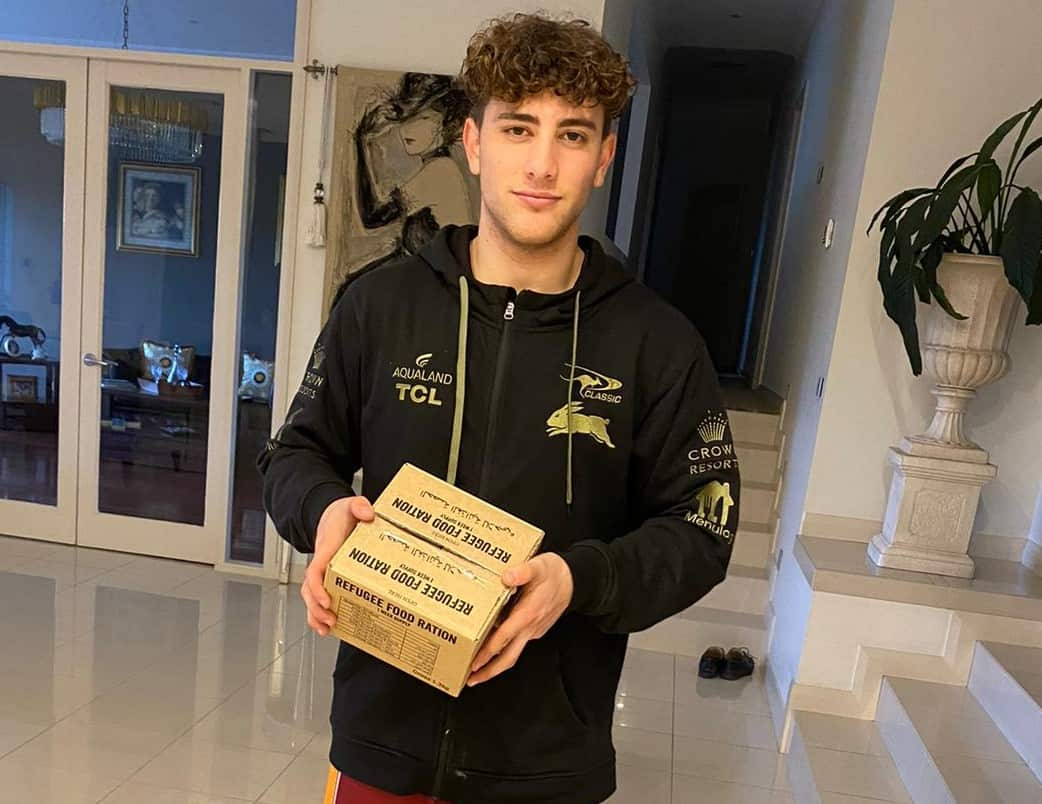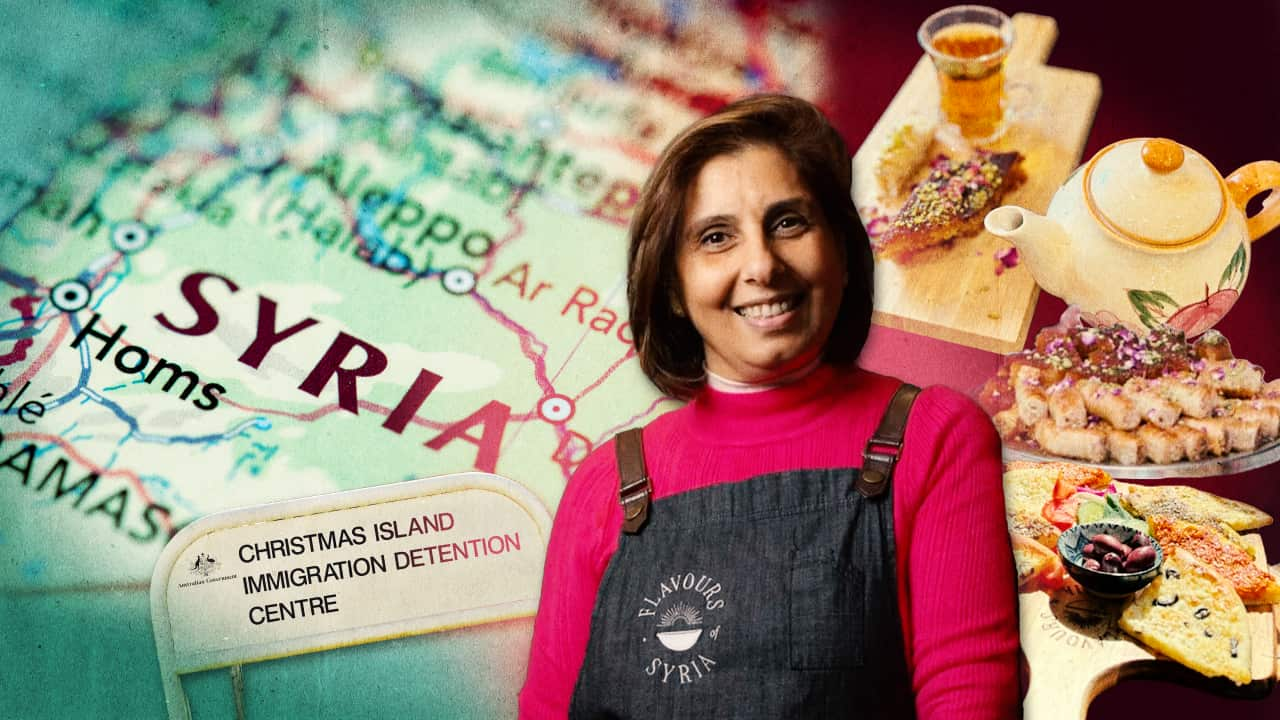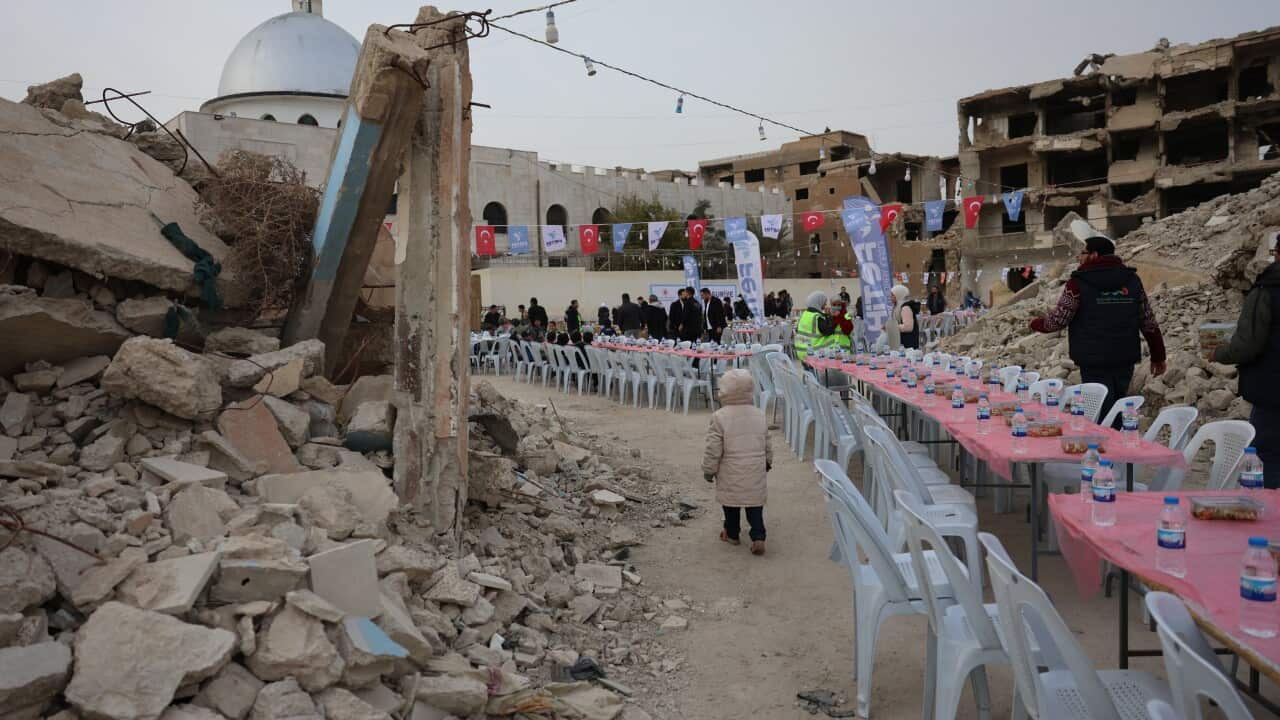More than 90 Australian schools and 1500 students took part in this year’s Ration Challenge organised by the aid agency Act for Peace, with the donations going towards basic necessities for Syrians in Jordanian refugee camps.
Jonathan Haddad from Oakhill College in Sydney told SBS Arabic24 he took part to raise money to “help save lives” and “create more empathy and compassion in society” for those displaced around the world. Like other participants, Haddad received a one-week supply of rations, which were roughly the same quality and quantity distributed to displaced Syrians in refugee camps in Jordan.
Like other participants, Haddad received a one-week supply of rations, which were roughly the same quality and quantity distributed to displaced Syrians in refugee camps in Jordan.

The Ration Challenge package. Source: JH
The Syrian civil war has been raging since March 15, 2011, and has resulted in a refugee crisis that has destabilised the country and neighbouring regions.
According to World Vision, there are about 6.6 million Syrian refugees in total, with 5.6 million of whom residing in neighbouring countries, and a further 6.2 million people displaced within Syria.
Participants in the Ration Challange also received vouchers for extra rice and flour that some refugees receive from other aid agencies in the camps.
From the moment Haddad woke up on June 13 until he went to bed on June 19, he consumed:
- Rice: 1.92kg *
- Flour 400g *
- Lentils: 170g
- Dried chickpeas: 85g
- Canned sardines (or tofu): 120g
- Canned beans: 400g
- vegetable oil: 300ml
* 420 grams represents the rice that is distributed to the challenge participants. The additional 1.5kg of rice and 400g of flour is additional food purchased with coupons some refugees receive from the UN or other organisations.
Haddad said he was surprised by the emotional impact the challenge had on him.
"Honestly I was a bit emotional about this. Being able to experience how refugees live every day of their lives in hunger devastates me.
“Seeing how much they get every single day to eat is horrible.” He said physical exhaustion was also an issue during the week.
He said physical exhaustion was also an issue during the week.

Jonathan Haddad, 17, managed to raise more than $1400 during the challenge. Source: JH
“I love my food so much, I eat a lot during the day.
"Mum made pasta for my sisters and dad and I was sitting down watching them eat while I ate lentil soup for the third day in a row, it makes me wonder how refugees must be feeling every day, eating the same thing, whereas we are here living the best life we can, eating whatever we want." Haddad's mother Patrice said she was “very proud” of her son for his initiative to take part.
Haddad's mother Patrice said she was “very proud” of her son for his initiative to take part.

A group photo of the 2021 Ration Challenge team at Oakhill College in Sydney. Source: CG
"This generation must learn to empathise with all human causes, and I was very happy that they wanted to take part in this challenge,” she said.
She said during the week, her son repeated the statement, “I can't believe it, how can this amount of food be enough for them?”.
“He thinks of young people of his age, and he says, 'how can they endure hunger and live on this much food?'"
The challenge highlighted the contrast between the daily lives of people living comfortably, and those in refugee camps, Act for Peace spokeswoman Ruthann Richardson told SBS Arabic24, noting that participants would often count how many days were left in the challenge to push themselves.
“For refugees, they don’t know when that end is, there is no end in sight, it could be six months, it could be six years, it could be 20 years,” she said.
“We designed the Ration Challenge to reflect as closely as possible the experience of relying on food rations. But it is important to remember that the situation of every refugee is different. The Ration Challenge is just one illustration of the conditions in which refugees live.”
Director of Mission at Oakhill College, Chris Goodman, coordinates charitable work between crisis relief agencies and Christian schools.
He said taking part in an initiative such as the Ration Challenge allows students to see life as it is in some of the world's harshest places.
"I think young people haven’t been pushed outside of their comfort zones, they only know the suburbs or the areas where they come from, while at times they might think they are having troubled lives when they actually look at the information from Act for Peace and they educate themselves around the fact that there is something like 1 per cent of the world is seen as refugees and there are millions and millions of people forcibly displaced through no act of their own, it is a great educational program," he said. “While the money-raising is obviously very important, the awareness and advocacy that will come from this and I think that educating our young people at this stage, gets them out of that bubble that maybe sometimes we can all live in."
“While the money-raising is obviously very important, the awareness and advocacy that will come from this and I think that educating our young people at this stage, gets them out of that bubble that maybe sometimes we can all live in."

Chris Goodman, Director of Mission at Oakhill College. Source: Chris Goodman
As for donations, when registering for the challenge, the organisation assigns participants with their own fundraising page.
"It makes me really happy every time I open up my fundraising page and I see that someone has donated, it’s such a good feeling to see that people are supporting me through this and supporting refugees and trying to make a difference,” Haddad said.
So far this year, the initiative has raised more than $900,000 in Australia.
The money raised is put towards programs that provide food rations, health care and other basic support to the people most affected by the COVID-19 crisis in refugee camps in Jordan.




